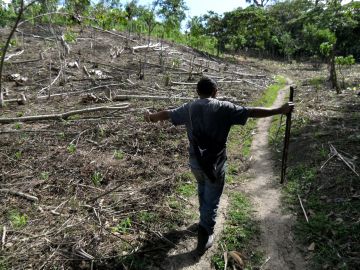How are Mayan farmers dealing with climate change?


Climate knowledge has been developed to reduce incertitude to environmental risks in many cultures; some societies may use magical and/or religious practices, others may use scientific forecasts. In any case, climate knowledge has a strategic meaning; insures productive systems and defines strategies face to hazards.
In some rural communities the credibility of scientific information (forecasts and early warning systems) may depend on the confidence of institutions (legitimacy) rather than the accuracy of scientific information. Yet, the lack of valid information (useful for decision making) remains an important problem that involves not just the scientific community but also governments, NGOs and citizens.
In Southern Mexico Climate change is altering the “usual” times to plant. The change of rainfall patterns and droughts increase the risk of losing crops. At this point, mitigation and adaptation programs are showing limited short term outcomes. So far, the Mayan farmers are dealing with climate change.
For the C’hol ethnic group (Mayans located in Chiapas) climate knowledge has an important relationship with cultivation techniques. Climate is part of the culture expressed in rituals and discourses that are in fact are complex systems to share knowledge. These practices are social resources which represent, in a non-explicit way, a mechanism to calculate risk.
Traditional knowledge is part of adjustment and resilience mechanisms but it is important not to idealize it. Some practices, as the use of calendars may not fit the right time to plant in climate change contexts. On the other hand, it is important to recognize that in many rural societies adaptability is a cultural practice based on experience and community relations rather than a probabilistic thinking.
Field research in the village of Tila shows us that for some farmers there was no difference between the religious and agricultural calendar, but they use of phenological indicators (birds migrations and insects) to validate the right time to plant. Most of the farmers interviewed recognize that rainy seasons are different. In order to deal with this they are planting corn and coffee at different altitudes. They are also delaying the time to plant depending on indicators, such as humidity. However, due to the short margin of benefit of subsistence agriculture, some farmers do not hesitate to migrate to larger cities or in some cases to plant monocultures such as African palm, use transgenic seed and/or carry out activities that lead to deforestation.
Traditional climate knowledge has limits; it may not work in all climate change situations, however many farmers are dealing with it by empirical experience based on the daily understanding of incertitude.
(0) Comments
There is no content